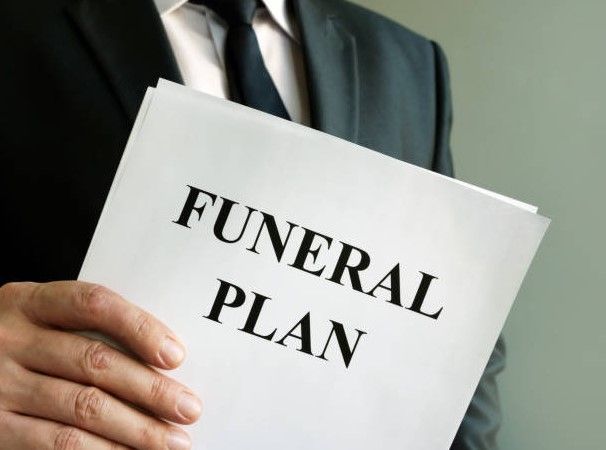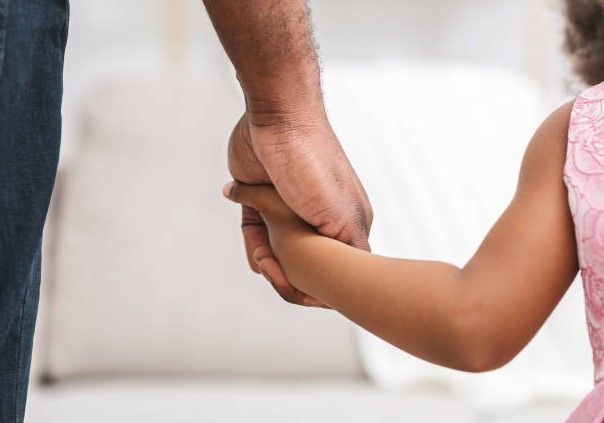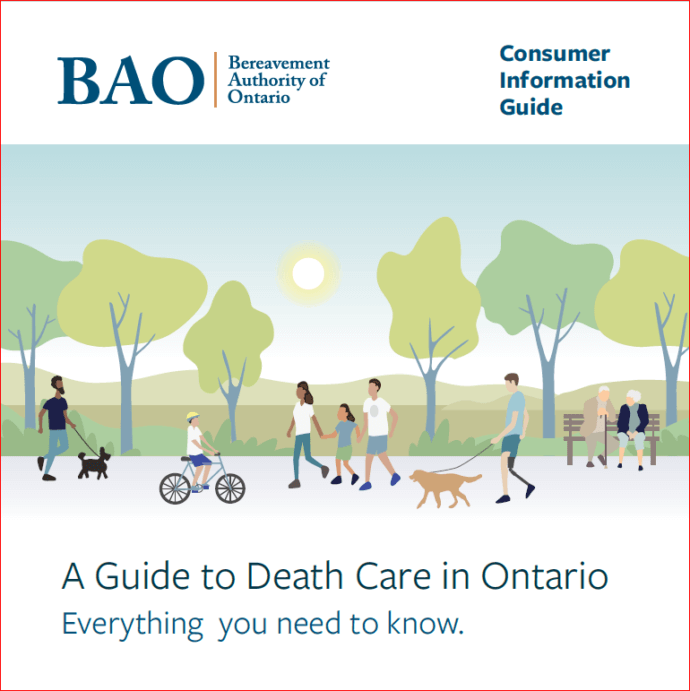Blog

For many, this is the most wonderful time of the year. Family comes home, the Christmas lights lend a sense of magic to the dark nights, and we look forward to traditions new and old. All of the songs on the radio remind us of the love, joy, and peace this season is about. For many others, though, this can be one of the hardest times of the year. With such a focus on good cheer, it can amplify the sense of loneliness and grief for those who are experiencing loss or separation. Trying to partake in festivities or emulate “merry and bright” can be overwhelming while trying to process your pain. Some may not be feeling very merry, and that is okay. Some may find their usual traditions to be too stressful, or too painful of a reminder, and may not wish to uphold them this year; that is okay. If you need to take a break altogether to prioritize your peace and wellbeing, that is okay, too. Others may take comfort in their traditions; the connection to the past may bring a sense of comfort. Perhaps making some brand new traditions will help this holiday season to feel special in its own way. Whatever you need this holiday season to help you through your grieving process, you are entitled to it. Grief counsellor Dr. Bill Webster advises that it can be beneficial to reduce the pressure of the holidays and redefine your expectations. Take inventory of your feelings, the energy you have available to you, and decide upon what you can do. And, more importantly, what you want to do. Do your best, but go easy on yourself — give yourself the leniency to change your plans last minute if you no longer feel up to them. Dr. Bill also stresses the importance of taking ownership of your own holidays; don’t wait around and hope for others to include you. Act rather than react and do for yourself whatever will make this holiday season meaningful. You can make a game-plan of whatever you feel you need to do, going through with certain traditions, forgoing some, and modifying others to better fit where you are at this year. If you know someone who may be going through a difficult time during the holidays, make sure you let them know that you are there for them. Follow their lead. They may need someone to take the lead on holiday preparations. They may need their loved ones to surround them more than ever. Or, they may need to be given some space; let them know that they are always invited, but do not pressure them to commit to something they may not be ready for. You never know what anyone could be going through, especially during this time of year. So, make sure to treat all those with whom you cross paths with love, charity, and compassion; after all, that’s what the holidays are meant to be. To read more about grief during the holidays, please feel free to take a look at this article by Dr. Bill titled A Not So Jolly Christmas - Grief Journey

Being in the funeral industry is a very unique experience. We see the entire kaleidoscope of situations and dynamics, the good and the bad. We know the ins and outs of the process that takes place after a death occurs, the dos and do nots, because we have seen the best and worst outcomes. These things become common sense to us, but the sense is far from common. We may be used to dealing with even the most complex situations, but most people do not know the first thing about what would happen after the loss of a loved one; “I’ve never done this before and I don’t even know where to begin,” is a very common leading statement. Even though we recognise this trend, it does not take an expert to know that our society avoids the topics of death and dying until absolutely necessary. Unfortunately, that usually means a tragedy has already taken place, or is imminent. Understandably, death is an uncomfortable topic to discuss even when you and those you care about are in good health. However, that is precisely the best time to have those conversations. Consider the alternative; you decide that there is no need to worry about yours or your family’s affairs because you have no reason to think that you will need to deal with it any time soon. Then, you get a phone call that your elderly mother had a fall in the retirement home, or your doctor says they need to follow up on something they found during routine testing. You never know what life is going to throw at you, which is what makes it both beautiful and terrible. You will feel much more secure knowing that if anything were to happen, you have safeguards in place to fall back on. The funeral industry is not the only one that has been advocating for end-of-life planning. The medical, financial, and legal sects have all been trying to educate the public for decades on the importance of having medical directives and powers of attorney, a valid will, and plans for your estate and all its assets. Without these, you risk leaving your loved ones scrambling to figure out how to manage the estate you leave behind. We have seen first hand the benefits of comprehensive end-of-life planning, which does not stop with funeral arrangements. This includes talking with a lawyer and forming a will, as well as planning with a financial advisor about how best to set up your finances to the advantage of your beneficiaries. It takes away many headaches to put solutions in place before the problems arise. If the idea of getting your affairs in order still seems overwhelming to you, here is the best place to start; with your loved ones. Find a time to sit down with them, tell them what your wishes are, and ask about theirs. That is how easy it is to get started, and it can make all the difference. Recommended reading: " Do Not Ignore Your Mortality: Practical Advice from a Funeral & Financial Insider ", by Greg Barnsdale

A question often asked of us while planning a funeral is what the family should do with their children — Do children normally come to funerals? How young is too young? Is your facility child-friendly? Would it be best to simply have them stay home? Planning a funeral in the midst of losing a loved one is a very stressful time, and having to wear the parent hat through it all adds a whole new realm of difficult decisions to face. We have heard from parents who are concerned about the effect it may have on their children, and many are afraid to expose them to such a difficult reality. Understandably, it is a parent’s natural instinct to protect their children, and to steer them clear of anything that may harm them. But, if you are going through a hard time dealing with the loss of your loved one, then you can imagine that your children are, as well. We believe the best way to protect our children is to bring them. Be with them as they experience it, help guide them through any tough emotions they may have, answer their questions as truthfully as you can. They can benefit from the experience of funeral services as much as you can. This is the best way to teach them to handle grief, and the reality of loss. It is far better for them to have their first experiences when they can lean on you, rather than their first experience be when they are planning your own funeral never having faced loss before. Moreover, it is important for children to have closure, too. Even though they may not have had many years with your loved one as you did, they still had their own relationship with them. They should be allowed to say goodbye too, even if they are still too young to fully understand its significance. They will understand it when they grow up, and they will be thankful for it. The subject of death as a whole is largely avoided in our society. It is only touched upon out of necessity and swept back under the rug as quickly as possible. We understand why — we see many people, many families, going through one of the hardest moments in their lives. We have been through it ourselves. We know how uncomfortable this topic is at the best of times, and how painful at the worst. We understand the instinct to block it all from our children’s view, shelter them until the storm has passed. We all want better for our kids than that. The best thing we can do as a society is talk about death together, and those conversations absolutely should include our children. What better way to ease our collective discomfort than to face it as a community, to educate ourselves, and to foster better support networks? They are far more resilient than we often give them credit for, and they are going to look to you to learn how to handle their grief. So, letting them see you going through this difficult time is the best way to help them go through it. Our answer when we are asked those questions is always yes. Bring your children, tell your family to bring their children, and we will welcome them as we would welcome anyone. And, maybe helping and guiding them will also help you, and you may end up surprised by how much comfort you can find for yourself by including them.

Ceremonial rituals surrounding death are as old as human life itself, spanning every culture and civilization. The specificity of funerary rites vary regionally, influenced by local religious practices, geography, and the social stature of the deceased. Yet, despite their long history and diversity, many of these historical conventions are still practised today. Early methods of embalming date back to the ancient Egyptians, as far as 3400 BC. This practice first began by removing the deceased’s internal organs, and then drying and wrapping the body to slow the process of decomposition. The modern method of chemical embalming was popularised during World War 1; because of the distance, and the violent nature of their deaths, this was a way of allowing families to see their loved ones one last time, and give them a proper funeral and burial. Today, embalming is a very standard practice. Cremation began thousands of years ago, and, until Constantine’s Christianization of the British Isles, it was the predominant form of disposition. Under Catholic regulation, body burials became the standard, and it wasn’t until 1963 that cremation was permitted by the Vatican. Today, thanks to modern technologies, we see a prominent trend toward cremation, again becoming the popular choice (incredible how things come full-circle). Cremated remains were typically kept in elaborate urns, and stored in columbarium-like walls, which is something that is still commonplace today. The pyramids of Egypt and Gyza, as well as Stonehenge, are all famous examples of historical entombment practices. More modern examples would be the crypts and catacombs that can be found beneath prominent churches and cathedrals. Such crypts and Mausoleums are still used in Cemeteries to this day. As we can see, many of the practices that constitute a traditional funeral in North America have roots in funeral rites existing across millenia. But, how have they changed within the changing landscape of our culture? One of the biggest changes in funerals has been the distancing from the Church. Funerals have become more informal, family-led and oriented, and memorials or celebrations of life have become increasingly popular. Funeral homes have had to become more flexible and open-minded as funerals have become increasingly personalised. New technology allows things such as recording and live-streaming, music options, 3D-printed urns and jewellery, the option to turn a loved one’s cremated remains into things like a firework or diamond, and much more. Additionally, current social concerns influence how people navigate the funeral sphere. Transfer services arose in the ‘80s to give people a quick and cost-effective alternative, and in today’s economy, many people choose to forego the bells and whistles. Moreover, rising eco-awareness has led to more environmentally-friendly dispositions, such as aquamation, tree-burials, or eco-friendly sea-burials. Jean-Baptiste Alphonse Karr got it right when he wrote that, “the more things change, the more they stay the same.” The core of funeral services today is amazingly similar to practices ten thousand years ago. Yet, funerals have more potential than ever to meet the unique needs of each individual in their time of grief.

Over the past few years, the bereavement sector has seen a shift into the corporate sphere. This may be an uncomfortable reality for some individuals or families who have already pre-arranged — and even prepaid — their final rites; it was independent when you made your relationship with the funeral home, but now it has been bought out by a corporation that is or will be making changes to the business. What to do? You can always transfer your pre-arrangements to another establishment. Believe it or not, it’s easier than you would think. In fact, it is as easy as a visit to the funeral home of your choice. Let them know about your existing arrangements, and leave your wishes on file with the new establishment. You’ll receive a few documents for you and your Estate Trustee to place in safe keeping. The rest of it will be taken care of by your new funeral home. Easy peasy. And, if you have prepaid, you do not need to worry; your money is always your money, held in trust by a third party. The funeral establishment holds it in trust until the time comes for that money to cover the costs of the contract for which it is prepaid. You can have it back at any time, and transferring your policy between establishments is an easy feat. You don’t even have to do anything, because that part is up to the funeral home. If you were planning on funding your funeral through an insurance policy or annuity contract, all you will have to do is fill out a form, which will be provided to you by the funeral director. It is worth noting, however, that the previous establishment which oversaw the investment of your prepaid funds has the right to keep ten percent, up to but not exceeding $350.00. This is an administrative fee, which may be written into your contract, and may be applied to your cancellation, though not all establishments will deduct this fee. But, if you decide to cancel your contract within the thirty-day cooling-off period, then this is a non-issue. There are many reasons why you may wish to transfer your funeral pre-arrangements to a new funeral home; whether you have moved, the funeral home has been bought out or closed, or you simply feel more comfortable somewhere else. Whatever the case, know that you always have options. You are never locked into a contract until all the goods and services have been provided. So, if you have reason to find a place for yourself within another funeral home, do not be afraid to make the change. First and foremost, you must do what is right for you, and your loved ones.

End-of-life is a topic people tend to avoid discussing, or even thinking about, and understandably so. Confronting the reality of what will happen after you or a loved one passes is not always a comfortable or pleasant experience. It is a topic fraught with fear and uncertainty. But, it doesn’t have to be. Having The Talk of a Lifetime with your loved ones, while it may seem daunting at first, can actually help to demystify what is to happen after the loss, and give everyone a little peace of mind knowing when the time does come, they have been equipped with the knowledge to make good decisions that will honour their loved one. However, this Talk is not just about your own or your loved one’s final wishes. Yes, it can help you to understand their wishes when it comes to end-of-life planning, but ultimately it’s about sharing one's life story, experiences, lessons, and so much more. It can even help to get to know each other in a new way, and to make invaluable memories during life. Oftentimes, conversations like these will be sparked by a major life event like the loss of a loved one, or a health scare. But why wait? Why not have these important discussions beforehand, when everyone can participate and emotions are not already running high? Instead of waiting for the worst, you can take control of the conversation and have it during a time when everyone is comfortable, in any space you feel comfortable. You can have it at a family gathering, or over dinner, or you can have a series of five-minute conversations that help to understand what you or your loved one wants. You can even get creative and make a game out of it! Just remember not to overcomplicate it, keep it on-track, and take notes. If you’re struggling to think of ways to broach the subject, or questions to ask, try talking about proudest achievements, most important pieces of advice, favourite memories, etc. Whether it’s a thought-provoking question or a lighthearted pondering, it’s all fair game. Memorialization is an important part of the grieving process, but it’s also important to make sure a life feels valued while still living — everybody wants to know that their life touched someone in some way. That is the essence of the Talk of a Lifetime. It’s scary to think about losing people we love, or coming to the end of our own lives, but don’t be afraid to connect with your loved ones in this way. If it brings you closer together, or gives you helpful information, you’ll be all the more grateful for it. For more information on Having The Talk of a Lifetime, you can visit our website at https://www.legacyfuneralandcremationservices.ca/have-the-talk-of-a-lifetime , or at www.talkofalifetime.org

We at Legacy Funeral Home believe it is important to give you the tools to make informative decisions regarding your future. Unfortunately we are not able to host a seminar at this time, but we have put together a video that we trust you will find informative and helpful. Click the link to watch the video: https://www.facebook.com/LegacyFuneralAndCremation/videos/437179544177586 Feel free to contact any one of us to answer questions or to help plan for your future. Lawyer: Trevor Owen 705-726-1181 Financial Planner: John Fischer 705-726-7256 Clinical Counselor: Steve Winfield 705-728-3017 ext:1205 Funeral Director: Matt Drury 705-728-8282

Ordinarily, grief makes it difficult to know up from down. But, the arrival of the pandemic has only muddied the waters. With all these restrictions, unknowns, and a future that seems uncertain, it can be hard to know what choices are right for us. Funeral rites give us something tangible to hold onto during the state of upheaval after the loss of a loved one. It’s an active, productive outlet for our emotions, which many grief experts say is especially important to healthy grieving. They also can help with healing, like a springboard from which we can begin to move forward again. Now, everything is in upheaval. This makes it so much harder to deal with the devastation in our personal lives when the time comes to say goodbye. This is why people have begun to put off any kind of rites, opting to revisit them during better times. However, by depriving ourselves of the closure that a formal farewell provides, we only draw out the grieving process. It causes a phenomenon of suspended grief — we can’t move forward, we can’t say goodbye, we end up stuck in one moment that lasts indefinitely. It’s understandable why nobody wants to put on a funeral for a limited number of people. What’s supposed to be a time of community begins to sound like a lonely experience. But, let’s examine the situation a little more closely; when you put off the process of saying goodbye you end up grieving alone, and so postponing a funeral only exacerbates the sense of isolation. During a time when isolation is already palpable and mental health is wearing thin, why make the situation even harder on ourselves? If we don’t know when these restrictions are going to be lifted, why put it off with no end in sight? In our professional experience even before the pandemic, we’ve seen the difference it can make when families are involved in the arrangements. Now, we’re seeing families suffer excessively because they were unable to properly grieve the death of their loved one. Other professionals have seen this, as well, and agree that funeral restrictions have people feeling they have to grieve twice — we’ve shared this excellent article on our Facebook page, and I implore you to check it out if you haven’t already. (https://www.cbc.ca/.../pei-funerals-grieving-pandemic-1...) Your grief can’t be postponed, so neither should a funeral. There are always options. You can have a small ceremony now, or even a graveside service, and a memorial or celebration of life later when these restrictions are lifted. You can livestream the service to connect with family and friends, and foster that much-missed sense of community; sharing prayers, memories, condolences, songs, etc. can be uplifting during a painful time, and we especially need that now. There’s a lot we don’t know, especially in such unprecedented times. But, one thing will always be true: grief is a unique, sometimes overwhelming experience. You’re still allowed to have closure, so don’t be afraid to have the service that you need.




